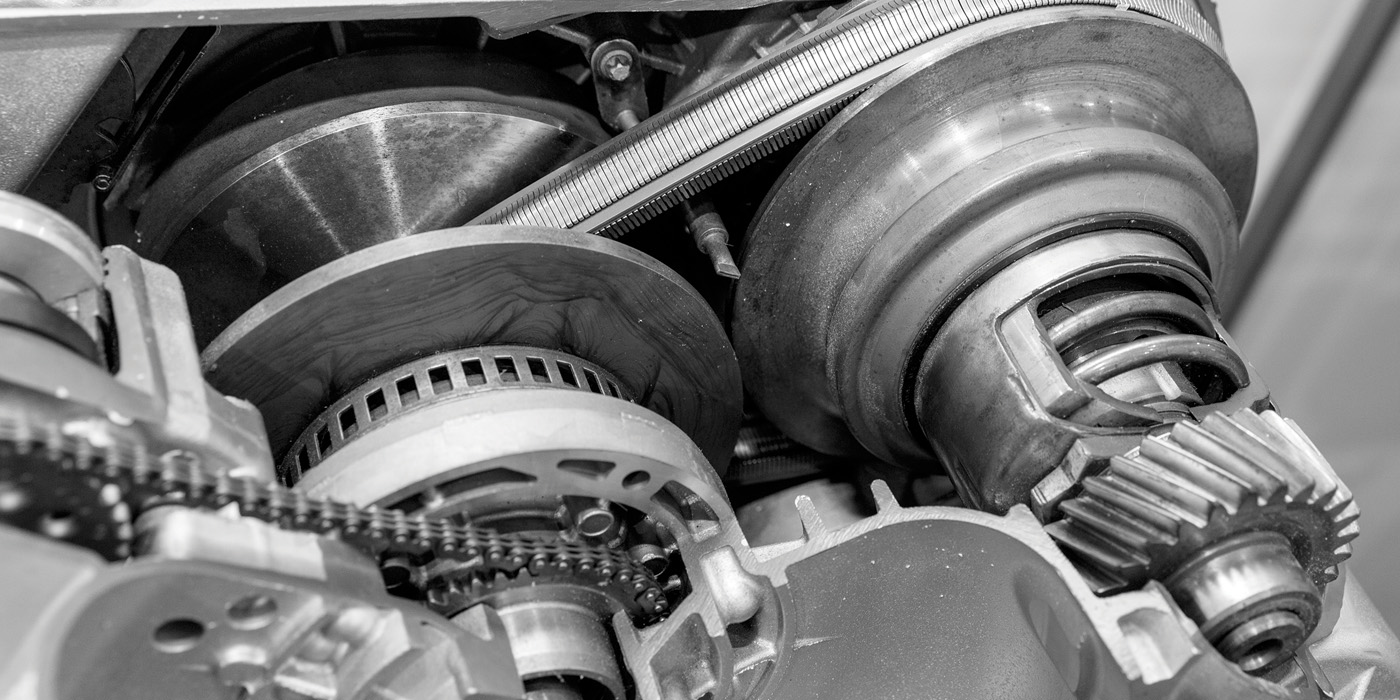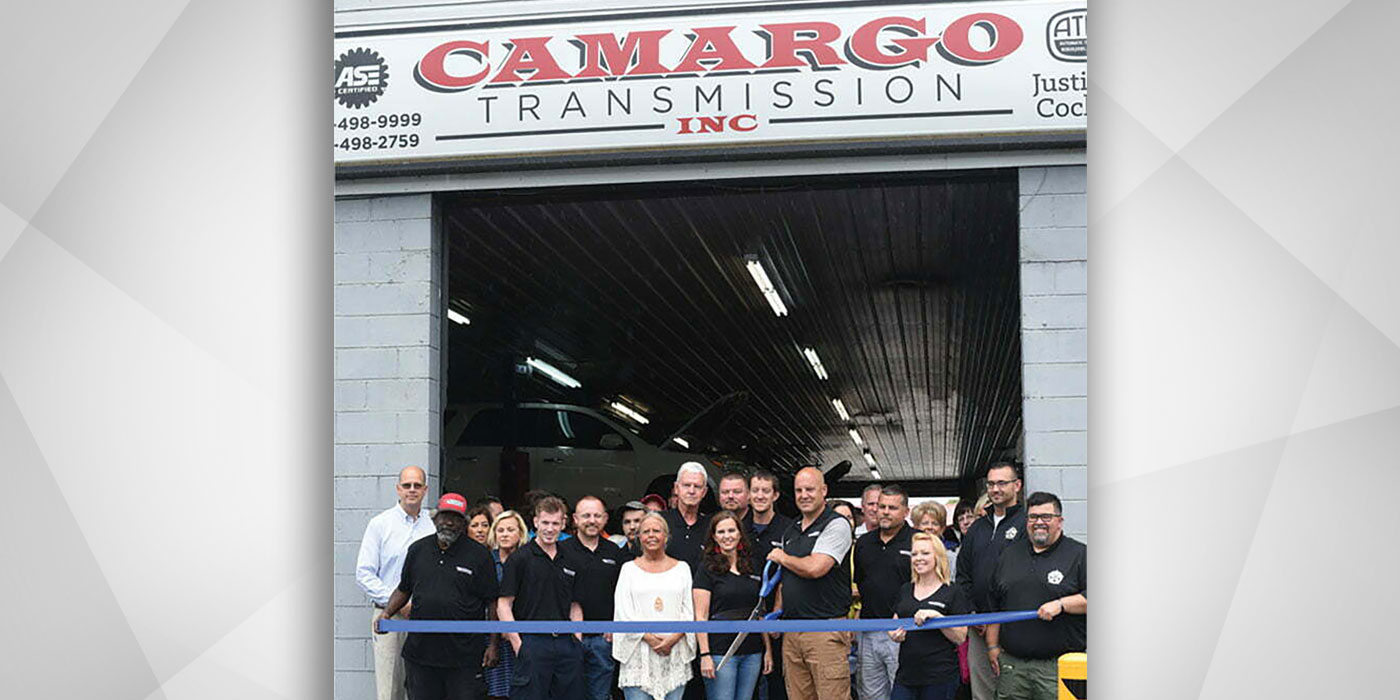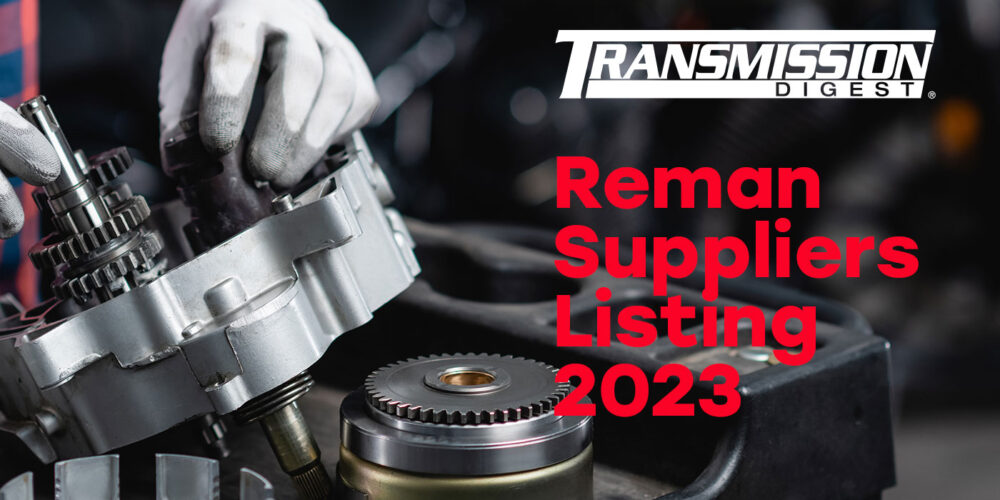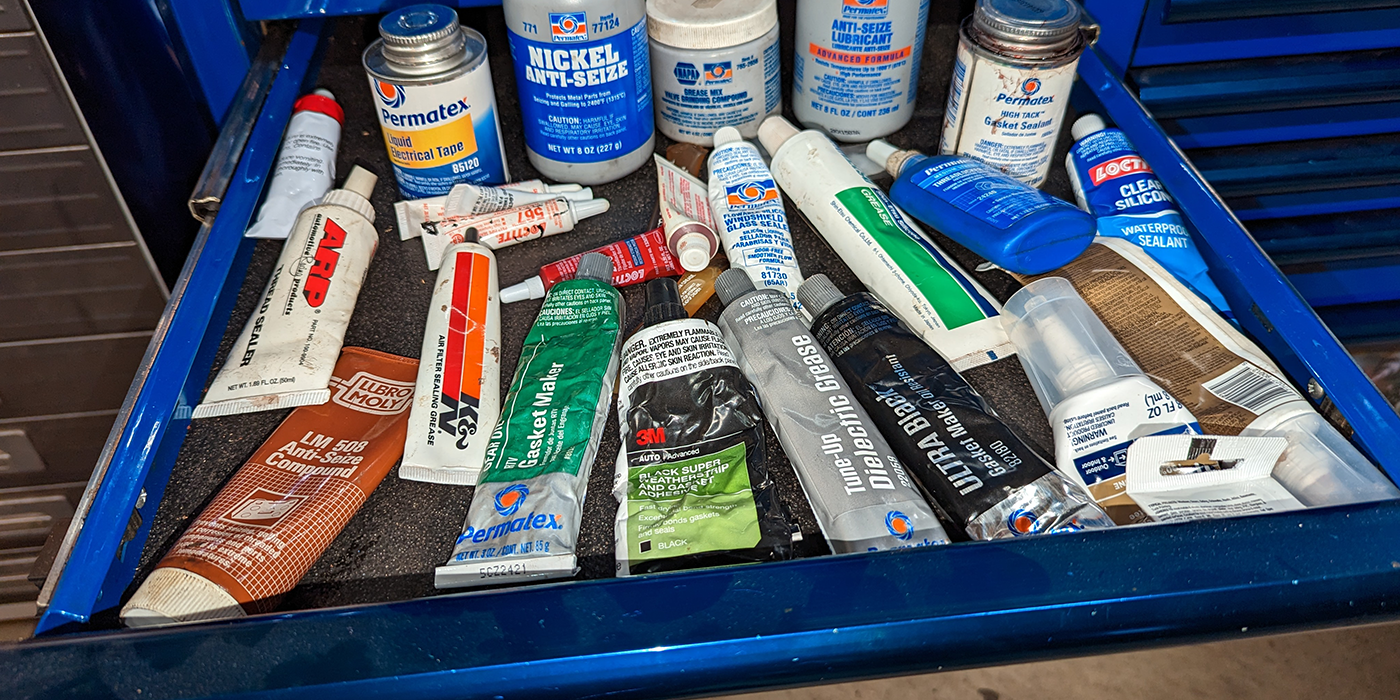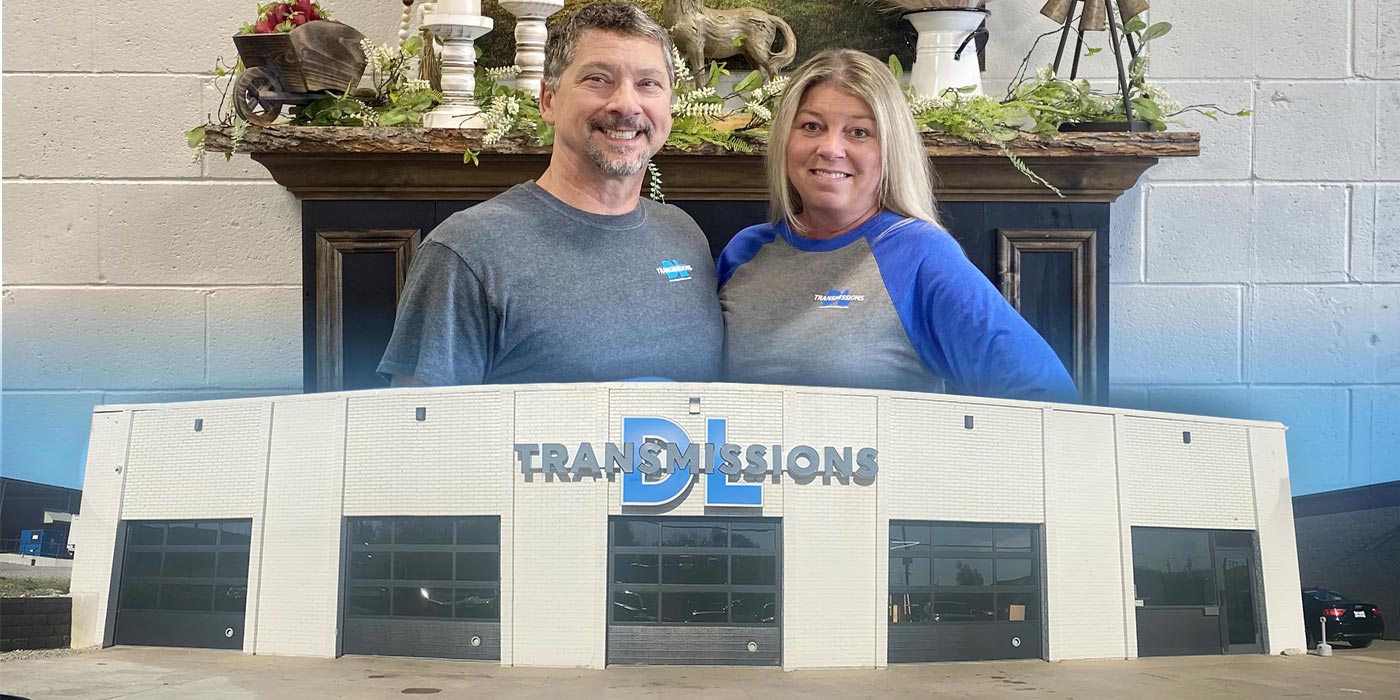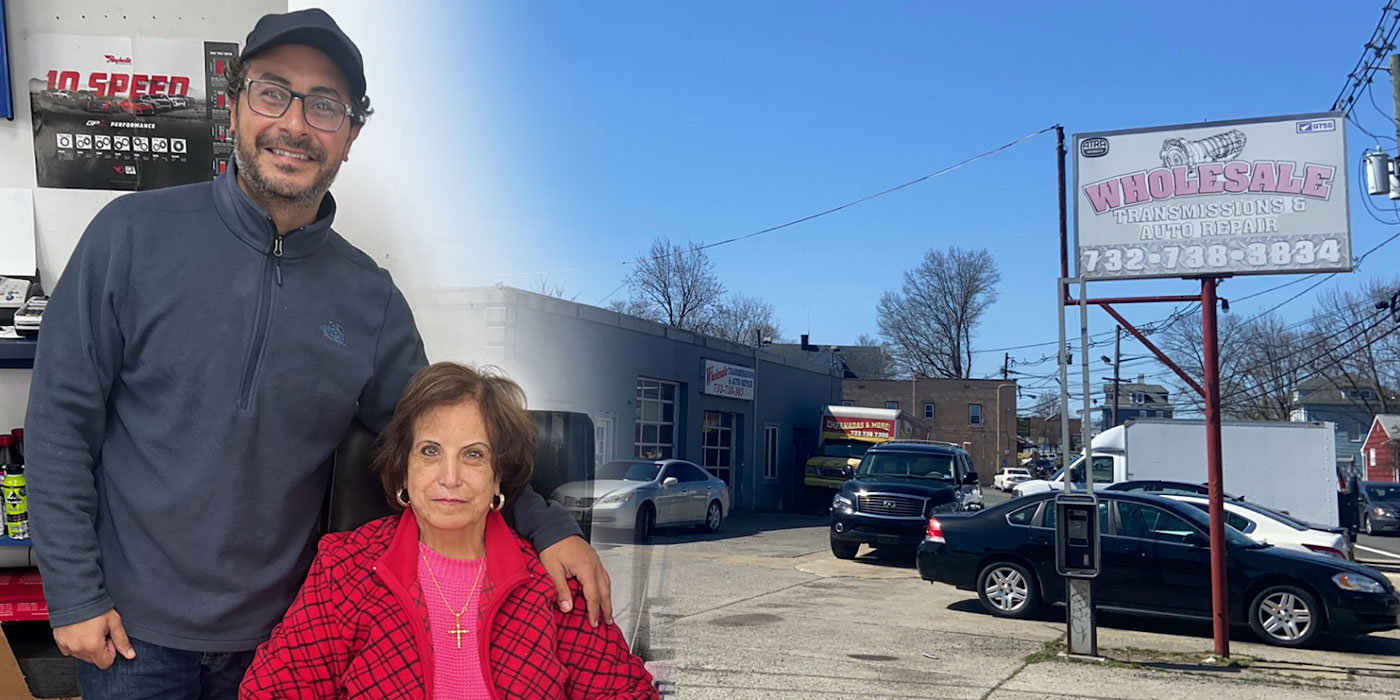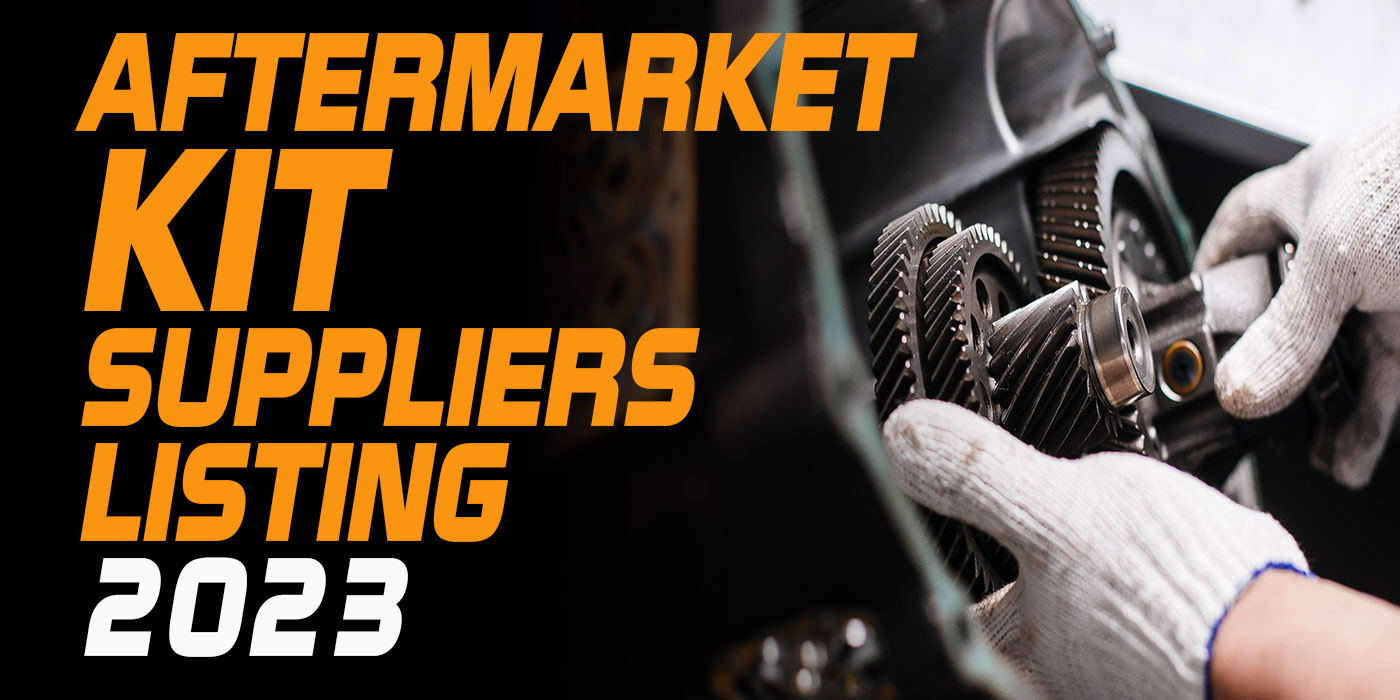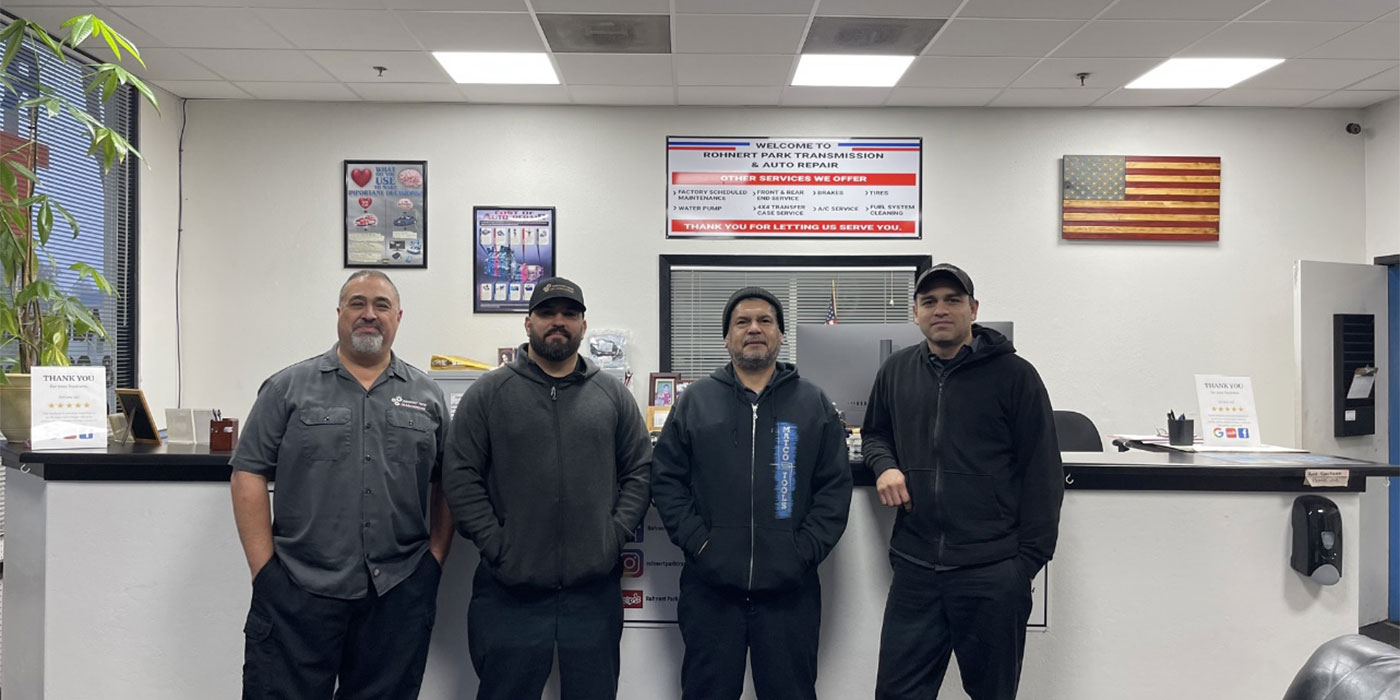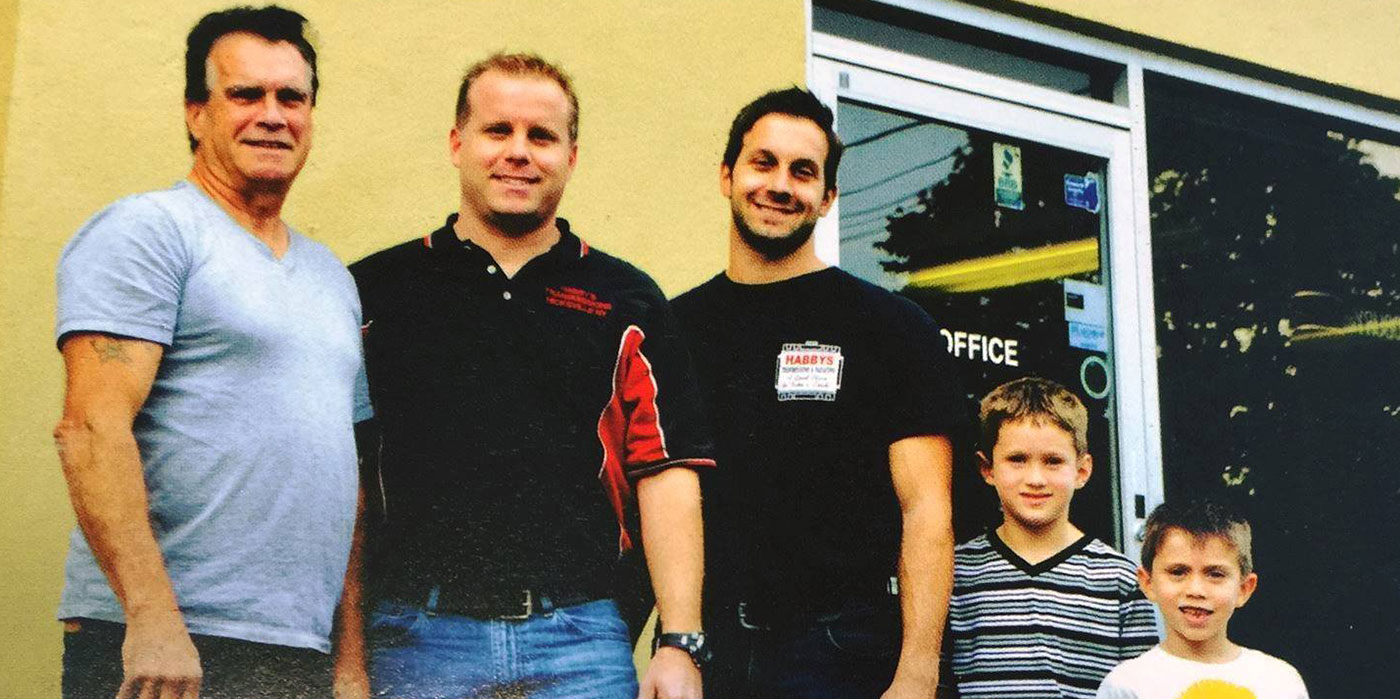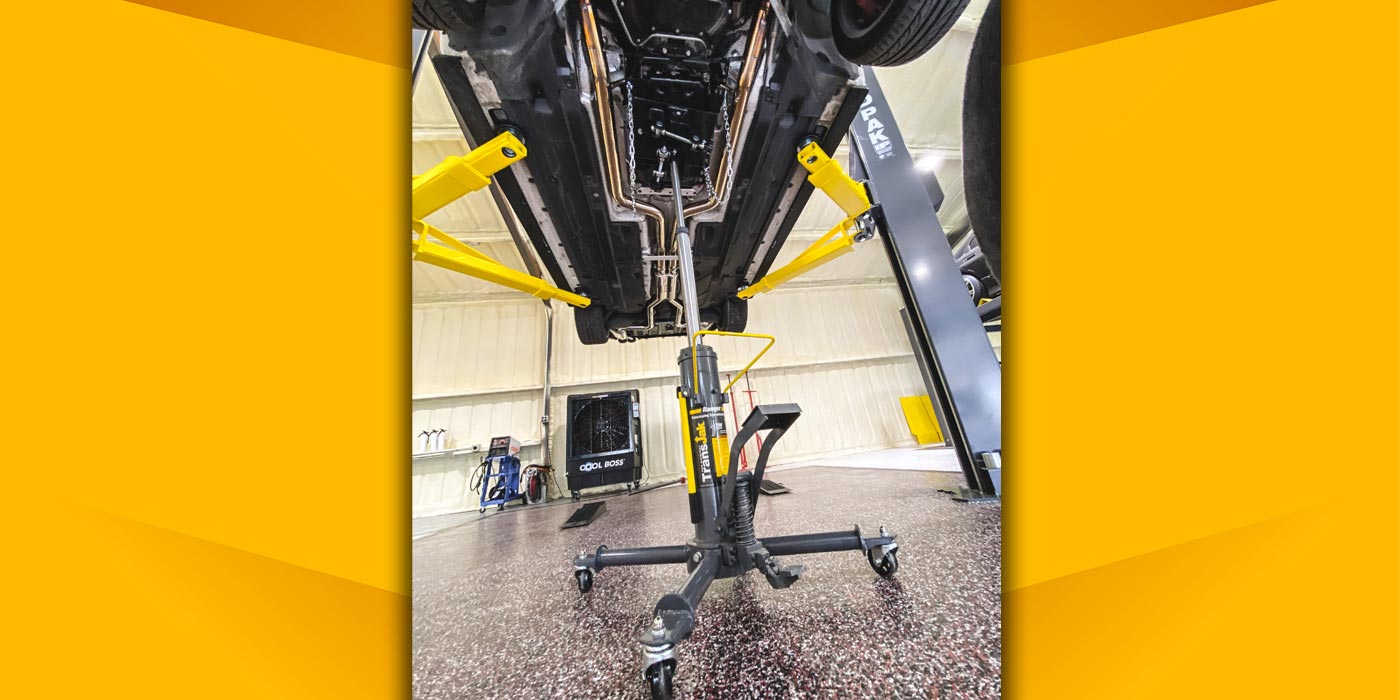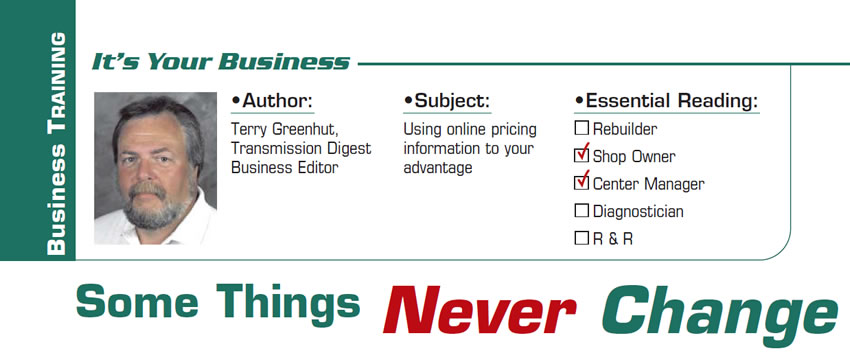
It’s Your Business
- Subject: Using online pricing information to your advantage
- Essential Reading: Shop Owner, Center Manager
- Author: Terry Greenhut, Transmission Digest Business Editor
A whole lot of concern has been raised lately over the fact that pricing information (right or wrong) has become so easy to obtain. Callers now start conversations with, “I was just on the Internet and I have a price to rebuild my transmission. How much can you do it for?” It’s annoying and upsetting to shop owners and service advisers that the public seems to know so much about their business.
Some of us who may not be the world’s greatest actors, or who let our emotions dictate to some degree the way we respond to customers, might come off sounding as if we are short or annoyed with them, and maybe we are. The trick, though, is to never let them know it. When someone tells you that they have some piece of information, no matter what it might be, listen to it, consider it and figure out how to use it to your benefit. Showing you’re upset only serves to make them wonder whether they’ve called or visited the right shop, so don’t do it.
An important question to ponder is, “Why would you be upset or thrown out of your routine by someone asking for a price right away or telling you they already have one?” Isn’t that the same thing they have always done? The difference is that in the past they didn’t have as many convenient sources for that pricing information. Now they don’t even have to talk with anyone to get it. They can just click on it, but so what? When you think about it, nothing has really changed. Since the day you started answering phones in your shop, hasn’t the first thing out of a customer’s mouth always been “How much?” And a good portion of those callers also tried to make you feel as though they knew something, had some bit of diagnostic information or had the inside track on a price.
None of that ever really bothered you before. You went ahead and sold them what they needed at the right price despite anything they might have told you or tried to make you believe. The only difference is that now they get their information electronically instead of verbally, but in so many instances it’s still incorrect information. In fact, I like it even better when they’ve gotten their pricing off the Internet rather than having taken the car to a shop and had it diagnosed by a real, live transmission expert. It’s much easier to poke holes in the way they’ve gone about it.
As an example: When callers tell you they got a price off the Internet, say, “That’s interesting; what made you go online to try to get a price?” They might tell you that someone had already told them they needed a transmission so they thought they would get a ballpark price on one. They might say that they automatically go online to find pretty much anything they are looking for today. They could also tell you that they assumed the prices on the Internet would be lower.
It really doesn’t matter exactly what they tell you. They are at this point now and need to be handled in a way that makes them feel that they are smart for doing whatever they have done so far. Now it’s time for you to take control and turn whatever they’ve done into an opportunity to sell them what they really need.
One thing you know for sure is that if they got a price off the Internet it was for a completely rebuilt transmission or something used from a salvage yard. Nobody sells “repaired” transmissions. So a major question to the caller would have to be, “Would you want to pay for an entire transmission if you needed only part of it fixed?” Or for the person who just thinks he needs a transmission because it’s shifting funny or slipping a little: “You know, many of the transmissions we repair here need only an adjustment or small repair to get them back on the road. Would you want to go ahead and buy a transmission if it turned out all you needed was a very minor repair?”

The answer in about 90% of instances will be “No, I wouldn’t want to pay for something I don’t need.” That’s your perfect opportunity to jump in and say: “I wouldn’t want to see you do that, either (putting the two of you in complete agreement). That’s why I’d like you to bring the car in so I can find out if you really do need a transmission repair and figure out how to do it for you as economically as possible.”
The other 10% will really think they know something. They’ll tell you that they know the transmission is bad and needs to be replaced. Don’t ever be intimidated by people who think they know something. They usually know a lot less than they let on. The first question I want to ask someone who insists that he or she has every aspect scoped out is: “Why did you call me? Obviously something has made you uncomfortable about the way you’re doing this. What is it?” Chances are they will admit they really aren’t all that sure whether they need a transmission and that they’re worried about spending a couple of thousand dollars with a stranger on the Internet who might be halfway across the country. Those are the points you need to use to turn them into customers.
A caller might tell you that even though he got prices he still wants to see whether he can do any better. Your answer would be: “It’s very possible that I can do better for you. To find out I will need to diagnose your problem to come up with the most-economical solution. That’s something you won’t find on the Internet. Why don’t you bring the car in so I can figure out the best way to solve your problem while saving you the most money?”
Don’t ever tell anyone that they’re wrong for shopping for a transmission or any repair online. When people think they know something – especially if they’ve seen it somewhere in print, like in a book or on the Internet – they generally choose to believe it over the spoken word of someone who they perceive is trying to sell them something. What they don’t realize is that all companies that advertise on the Internet are trying to sell something, and why wouldn’t they? You, as the local-community neighborhood shop, need to show that you care far more about solving their problem than just selling them something to make a profit. So whatever information they give you, just use it to your advantage.
If they call and say, “I already have a price,” you might answer by saying, “Hey, that’s great, but if you already have a price is there any particular reason why your car isn’t being repaired right now?” Listen very carefully to their answer. They are about to tell you the one piece of information you need to close for the appointment you want. After all, if they were happy or totally convinced by the information they had received they wouldn’t now be calling you or anyone else.
They might tell you that they aren’t really sure that they need the work they priced online. This is again your chance to go into total agreement with them. Say: “I understand. I wouldn’t want to pay for something that expensive unless I was sure I needed it. Why don’t you stop by and let my certified technicians have a look? They’ll be able to determine exactly what you do need and how much it will take to do it right and as economically as possible.”
The Internet, like any other informational tool, is just a source. Customers will use it to what they think is their advantage. It may not be, depending on the exact situation. If shopping for a brand-name product that’s exactly the same no matter where it’s purchased, then one would be foolish to pay any more than absolutely necessary. With a service, such as we sell, there are many variables. If you get the opportunity by receiving a phone call from an Internet price shopper, you must educate this consumer as to the other options available. In other words, you need to plant some doubt in their minds as to the way they are going about this, then offer an alternative that will allow them to still be right but get you what you need.
Always remember that quoting a price is supposed to be the last thing you do in a sales procedure. When prices are quoted first as they are on the Internet or on the phone by a service adviser who doesn’t know any better or is just being lazy, the entire sales process is being chucked out the window. The customer is being told, “Here it is; take it or leave it.” When they click off the site or hang up the phone they’ve elected to leave it. To get them to take it a lot more work would need to be done.
Customers buy only when they are convinced that they truly need the product or service and are shown enough benefits to justify the cost. Shooting a price first doesn’t allow for any of that. So next time someone calls and says they already have a price, don’t worry about where it came from. Just think about how you can use it to get what you really need: four wheels firmly planted in your driveway.

Terry Greenhut, Transmission Digest Business Editor. Visit www.TerryGreenhut.com.

